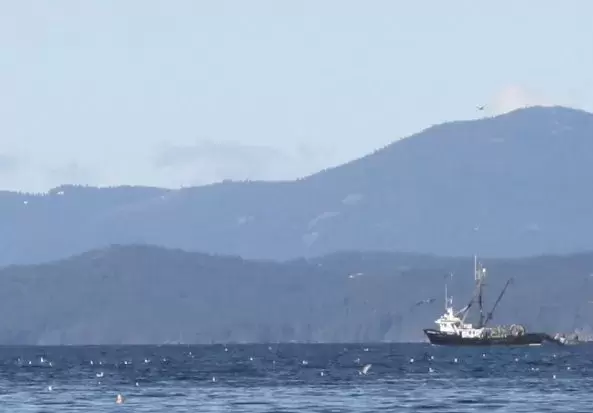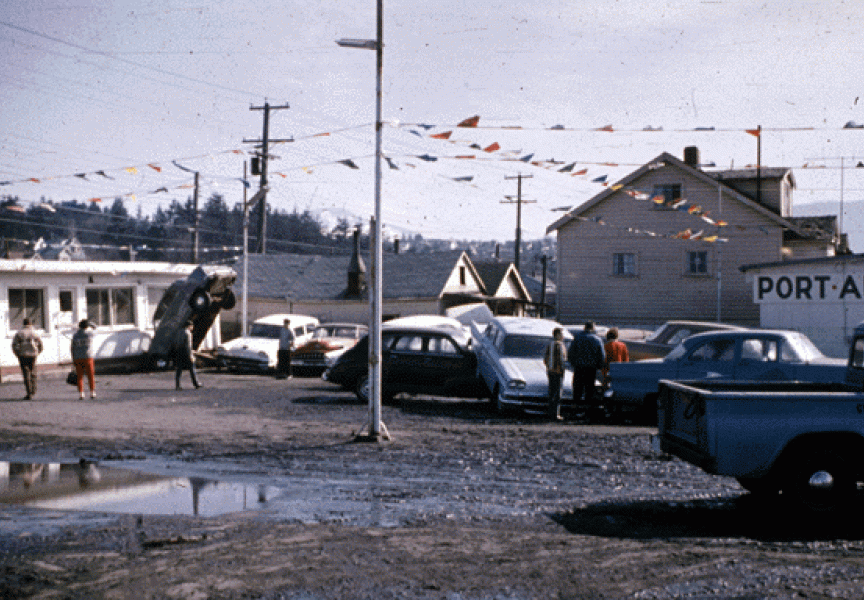An open letter to the Nuu-chah-nulth Tribal Council and BC commercial herring fishermen:
In support of the Nuu‐chah‐nulth Tribal Council request dated Jan 5, 2015, the United Fisherman and Allied Workers Union – Unifor recommends to all BC commercial herring fishermen that they do not select WCVI as their seine or gillnet area for upcoming 2015 herring season. The decision to support this request was not taken lightly and based on four factors: independent science review of the herring stocks in the WCVI region; our own fishermen’s assessment of the state of these WCVI stocks; respect for local First Nations insights; and willingness to build a collaborative understanding of the state of these herring in our shared ecosystem.
Read Nuu-chah-nulth request here: http://www.hashilthsa.com/news/2015-01-06/open-letter-bc-commercial-herr...
The independent science was presented and discussed in part at a meeting hosted by the Canadian Fisheries Research Network at UBC Fisheries Centre in Nov 6, 2014 with scientists, DFO management, and industry representatives in attendance. Serious questions were raised about the DFO model used to predict herring stocks, as well as changes made in herring stock assessment methodology that have mysteriously reversed the downward trend found in the previous method. Spawning stock biomass is thought to below 5% of unfished biomass. The department’s main questioning in these discussions was around the definition of a recovered stock.
Fishermen and the UFAWU‐Unifor have been supportive of First Nations involvement in commercial fisheries for multiple decades. Our sector is the only economic sector in the province where employment is fully one quarter First Nations – no other sector even comes close. We have also been on the front lines advocating nationally and internationally for protection of fisheries for local independent fishermen and adjacent communities.
In the 1970’s we pushed Canada to take a lead role for the development of the UN Convention on the Law of the Sea (UNCLOS) to enshrine local fishery and adjacent community protection. We were successful in this as coastal States were granted 200nm Exclusive Economic Zones (EEZ) – with a sustainable management caveat. Fisheries Minister Romeo LeBlanc in a 1979 speech to the House of Commons said: “It was in the name of the small coastal communities and the small fishermen who could not compete with the foreign fishing fleets that we argued successfully with the rest of the world that Canada should manage the 200‐mile zone”.
However these ideals have been lost in fisheries management policies on Canada’s Pacific coast. Over the last four decades access to fish and fisheries has become separated from BC fishermen and adjacent rural communities. Unlike our Atlantic coast, Canada has not protected these interests with the same fleet separation policies enforced in the four Atlantic Provinces and Quebec.
Today many BC fishermen find themselves living with poverty level wages. There are few new entrants training for the sector because the prospects are so poor. After forty years of fleet rationalization intended to protect fishermen and adjacent communities, only one quarter the number of the fishermen are left from 1980s, and every rural BC fishing community continues to decline. Obviously policies of the last decades have not worked. Fishermen are now catching more fish and making less money, not because the fish are worth less or they are more difficult to catch, they are not, but because armchair fishermen, license investors and speculators are allowed to lease the right to fish, and charge prices that at times exceed 75% of the landed value of the catch. Fishing licenses should be for fishermen to fish, not for speculative investing or leasing. Fishermen cannot and should not have to compete head on with outside investors or with multi‐national corporations’ when it comes to attaining fishing licenses.
All our rural adjacent communities suffer as do our independent fishermen when multi‐national corporations are allowed to abuse their dominant position. Our weak fisheries licensing regime is allowing this and this needs to change. Policies need to be put in place to drive fishing licenses back into the hands of independent fishermen and rural coastal communities.
As for working directly with First Nations, we are doing this on a number of fronts and commit to continue. On the West Coast of Vancouver Island we have been a member, since inception, of West Coast Aquatic Management Board. In the North Coast we have played a key role in the provincial ‐First Nations MaPP planning process. It is through these multi‐sectorial integrated management processes that we hope to find common understandings of the complex problems we face, and build solutions that work for our shared future. We are willing to work bilaterally to build a Coastal Fisheries Strategy to support thriving First Nations and independent fishermen fisheries on our coast.
As for the way the DFO‐Pacific makes decisions on fisheries policies: this needs to change. Their opaque processes demands transparency – this has been highlighted many times most recently in the Cohen Commission. Adjacent communities, including First Nations, and active fishermen need to be integrally involved in decision making. DFO‐Pacific’s corporate democracy, where licence holders who do not fish regularly out vote active fishermen, makes a farce out of co‐management of our common property. The socio‐economic outcomes are not acceptable; the decision making structure needs to change.
The issues raised here regarding these herring stocks speak to a more systemic issue that is related to broader governance and management issues. We understand that these are complex issues and are willing to work directly with all parties to resolve. It is with great respect we submit this letter to the Nuu‐chah‐nulth Tribal Council and BC commercial herring fishermen. We hope there is understanding for fishermen that have been put in the middle of this situation and are only trying to make a living in an industry that many have been in for generations. We truly hope that we can work together for a more sustainable fishery, more sustainable communities and a shared future our children will be proud to be part of on this magnificent coast we all live on.
Respectively,
Kim Olsen,
President UFAWU-Unifor
Cell 604-836-5570



